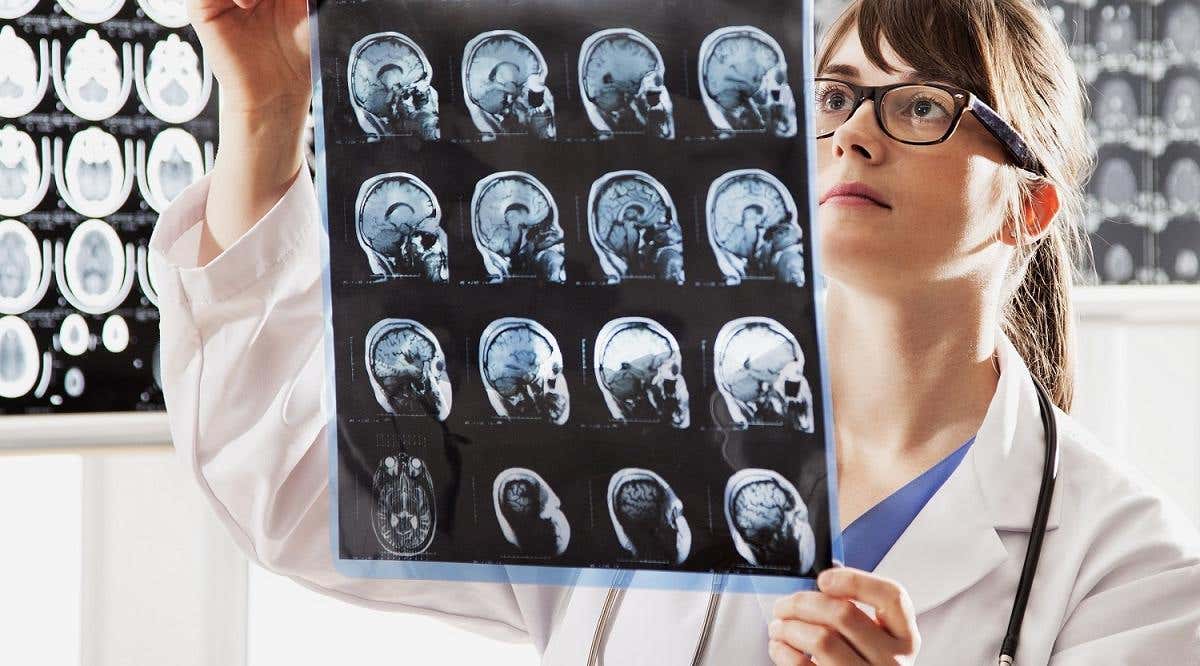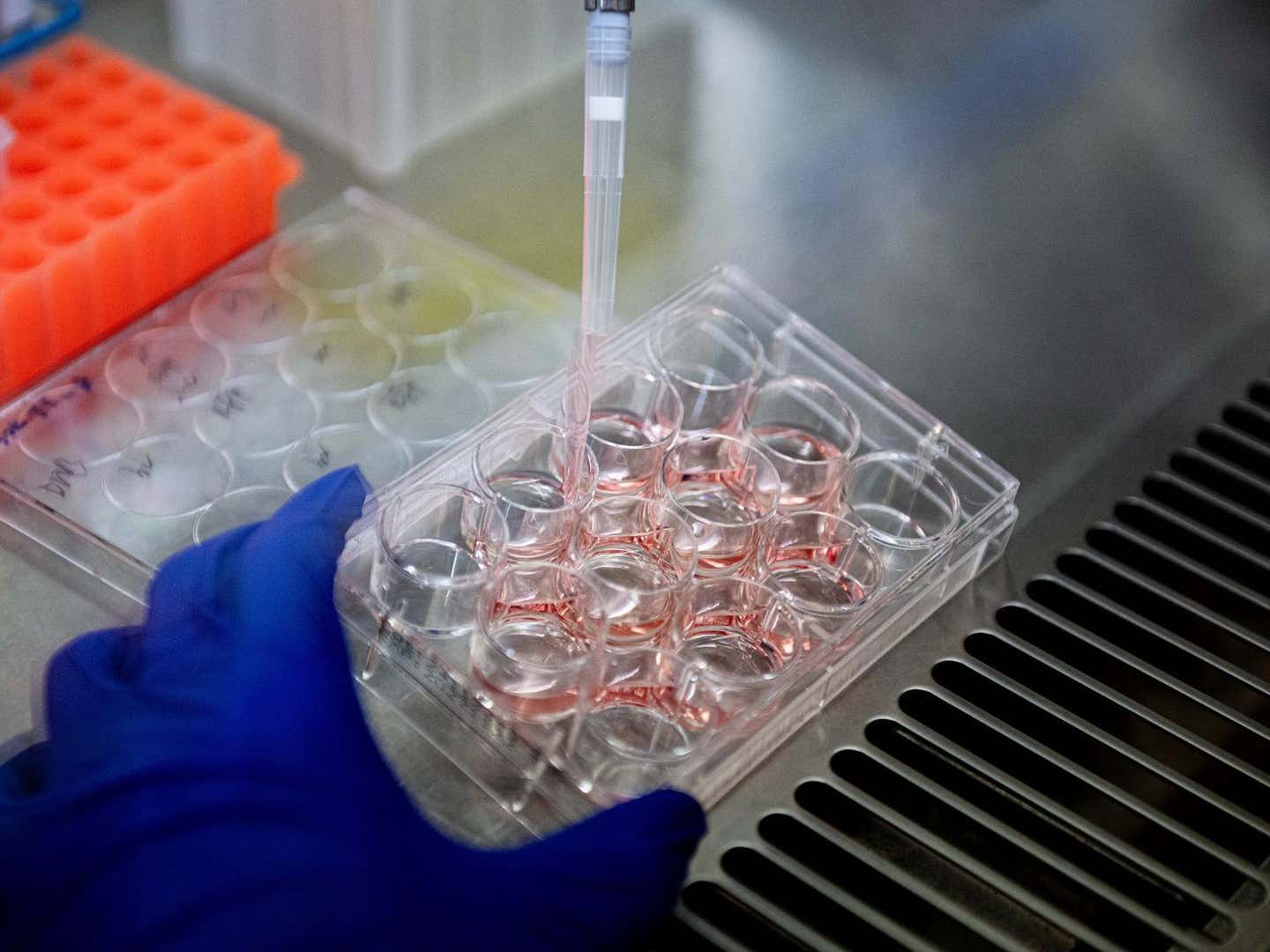Breakthrough treatment uses the body’s own cells to treat traumatic brain injury
Each year, over a million people in the United States suffer from TBIs, with nearly 70,000 succumbing to TBI-related complications.

[Jan. 4, 2024: JD Shavit, The Brighter Side of News]
Each year, over a million people in the United States suffer from TBIs, with nearly 70,000 succumbing to TBI-related complications. (CREDIT: Creative Commons)
Traumatic brain injuries (TBIs) have long been a devastating challenge for medical professionals. Each year, over a million people in the United States suffer from TBIs, with nearly 70,000 succumbing to TBI-related complications.
Until now, treatment options for TBI patients have been limited to symptom management, leaving the underlying brain damage unchecked. However, a groundbreaking study published in PNAS Nexus has introduced a new ray of hope.
Scientists have developed an innovative approach that utilizes macrophages, a type of white blood cell, to significantly reduce brain lesions and inflammation in a TBI.
These findings offer a glimpse into a promising future where TBI patients may benefit from localized anti-inflammatory treatment. The research was conducted by a team led by senior author Samir Mitragotri, Ph.D., a Core Faculty member of the Wyss Institute at Harvard University, and Rick Liao, Ph.D., a Postdoctoral Fellow at the Wyss Institute and SEAS, among others.
Related Stories
One of the primary culprits in TBI-related brain damage is the uncontrolled inflammatory response that follows the initial injury. When brain cells die due to the impact, they release pro-inflammatory molecules known as cytokines. These molecules not only attract immune cells to clean up the damaged tissue but also disrupt the blood-brain barrier, leading to blood leakage into the brain.
This accumulation of blood triggers swelling, impairs oxygen delivery, intensifies inflammation, and creates a vicious cycle of bleeding and damage, ultimately causing more cell death. Recognizing this challenge, the Mitragotri lab aimed to harness the potential of macrophages to intervene in this destructive process.
Cellular "Backpacks" for Healing
Macrophages are versatile cells capable of toggling between pro-inflammatory and anti-inflammatory states. The team's previous work in cancer research had focused on enhancing macrophages' pro-inflammatory response within the tumor microenvironment. However, their current endeavor aimed to keep macrophages calm amidst the inflammation-riddled landscape of a brain injury.
When backpack-bearing macrophages were injected into pigs with a mock TBI, the size of their lesions shrunk dramatically, reducing the amount of brain tissue damaged. (CREDIT: Wyss Institute at Harvard University)
To achieve this, the scientists developed disc-shaped "backpacks" containing layers of two anti-inflammatory molecules: dexamethasone, a steroid, and interleukin-4, a cytokine that promotes macrophages' anti-inflammatory behavior. These backpacks were then attached to macrophages, enabling them to retain an anti-inflammatory state when they reached the brain injury site.
In vitro experiments confirmed that the backpacks adhered securely to both human and pig macrophages without any adverse effects. Furthermore, the application of these backpacks reduced pro-inflammatory markers' expression while enhancing the expression of anti-inflammatory markers, effectively maintaining the pig macrophages in a healing state.
A macrophage (green and blue) sports a backpack (red) attached to its surface, which is delivering anti-inflammatory signals to keep the cell in a healing state. (CREDIT: Wyss Institute at Harvard University)
To validate their approach in a living system, the researchers turned to pigs as their model organisms, as their brain structures and responses to injury closely resemble those of humans. However, this presented its own set of challenges.
Scaling up the production of backpack-bearing macrophages to match human-scale treatments proved to be a formidable task. Previous rodent studies required millions of macrophages and backpacks per subject, whereas the porcine study demanded hundreds of millions. A dedicated team of over 20 members from institutions including the Wyss Institute, Harvard, MIT, and Mass General Hospital worked tirelessly to overcome these logistical hurdles.
In the experimental phase, backpack-wearing porcine macrophages were infused into the pigs' bloodstream four hours post-TBI. Seven days later, the results were nothing short of remarkable. Pigs that had received the macrophage treatment exhibited a significant concentration of these cells around the injury site. Their brain lesions were an astounding 56% smaller than those of untreated animals, with considerably less hemorrhaging.
Moreover, local immune cells showed reduced levels of CD80, a pro-inflammatory activation marker, suggesting that the macrophages successfully controlled the inflammation in the brain. This was further supported by lower levels of soluble inflammation biomarkers in the blood and cerebrospinal fluid of treated animals, with no observed negative side effects.
Future Horizons in TBI Treatment
The success of this study paves the way for further research into how this anti-inflammatory macrophage therapy affects the integrity of the blood-brain barrier, potentially opening doors to treating other conditions like hemorrhagic strokes.
This schematic demonstrates how the anti-inflammatory backpacks are constructed (bottom left) and injected into subjects (top left) so that they can infiltrate the brain (top right) and shift the injury microenvironment from a pro-inflammatory to an anti-inflammatory state (bottom right). (CREDIT: Wyss Institute at Harvard University)
Donald Ingber, M.D., Ph.D., Wyss Founding Director, praised the study, stating, "This impressive study describes a truly novel and potentially powerful macrophage-based therapy for treating the inflammation that is the root cause of so many human afflictions. It offers an effective and non-invasive approach that works with biology rather than against it."
While there is still much to learn and explore, the potential for transformative therapies on the horizon is a promising development for TBI patients and their families.
Note: Materials provided above by The Brighter Side of News. Content may be edited for style and length.
Like these kind of feel good stories? Get the Brighter Side of News' newsletter.



